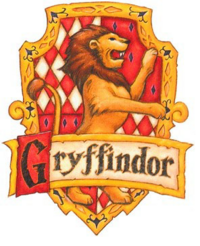Team Gryffindor

| |||||
| Gryffindor Team Logo | |||||
|---|---|---|---|---|---|
| |||||
Section 10.5 of PDK Reference Manual explains how to run the sample software application. It has been reproduced below in brief.
Compiling the Project
The rev version installed on the Convey machine is from 2011-11-22; to copy the sample app's source code run:
cd ~ mkdir pdk_sample cp -r /opt/convey/pdk/latest/hc-1/examples/* pdk_sample
To make the sample project, first make sure you have setup your environment variables, then run:
cd ~/pdk_sample/cae_pers_vadd/SampleAppVadd/ make
This compiles both an emulator (CaeSimPers) and a C program that makes a coprocessor call to use the vector adder (UserApp.exe).
Run the Project
Projects typically contain the following three executables:
- A software simulation of the FPGA design
- A hardware simulation (ModelSim) of the FPGA design
- The actual implementation (C code, Verilog code). The bitfiles are compiled, nicknamed, and added to a known file location.
Actual Implementation
To run the software version of the app that makes a call to the coprocessor, use the command:
cd ~/pdk_sample/cae_pers_vadd/SampleAppVadd/ ./UserApp.exe
You should see the program run and output the following:
You can also set the CNY_CALL_STATS environment variable; this variable gives back the number of times the coprocessor was called. I.E. for this application, the coprocessor is called once. Output from the terminal is reproduced in the following file:
Running in the SW Model
To run the sample application on the Coprocessor simulator, you'll need to set some environmental variables:
# Use the Coprocessor Simulator export CNY_SIM_THREAD=libcpSimLib2.so # Point to the emulator export CNY_CAE_EMULATOR=~/pdk_sample/cae_pers_vadd/CaeSimPers/CaeSimPers
After setting the environmental variables, rerun the app:
cd ~/pdk_sample/SampleAppVadd/ ./UserApp.exe
The program will pause at the following screen for a 10-20 seconds...
...and then finish running the program.
Assignment #2
Description of Sobel's Algorithm - This is a great website teachs us how it works, and it also provide some examples, which help us to implement in C code.
Compiler:
gcc -O -lm sobel.c -o sobel
./sobel
Sobel edge detection algorithm code with C (Since the code is very long, I just show key part of algorithm):
int sobel(double threshold) {
unsigned int x, y, i, v, u; // for loop counter
unsigned char R, G, B; // color of R, G, B
double val[MASK_N] = {0.0};
int adjustX, adjustY, xBound, yBound;
double total;
for(y = 0; y != height; ++y) {
for(x = 0; x != width; ++x) {
for(i = 0; i != MASK_N; ++i) {
adjustX = (MASK_X % 2) ? 1 : 0;
adjustY = (MASK_Y % 2) ? 1 : 0;
xBound = MASK_X / 2;
yBound = MASK_Y / 2;
val[i] = 0.0;
for(v = -yBound; v != yBound + adjustY; ++v) {
for (u = -xBound; u != xBound + adjustX; ++u) {
if (x + u >= 0 && x + u < width && y + v >= 0 && y + v < height) {
R = *(image_s + byte_per_pixel * (width * (y+v) + (x+u)) + 2);
G = *(image_s + byte_per_pixel * (width * (y+v) + (x+u)) + 1);
B = *(image_s + byte_per_pixel * (width * (y+v) + (x+u)) + 0);
val[i] += color_to_int(R, G, B) * mask[i][u + xBound][v + yBound];
}
}
}
}
total = 0.0;
for (i = 0; i != MASK_N; ++i) {
total += val[i] * val[i];
}
total = sqrt(total);
if (total - threshold >= 0) {
// black
*(image_t + byte_per_pixel * (width * y + x) + 2) = BLACK;
*(image_t + byte_per_pixel * (width * y + x) + 1) = BLACK;
*(image_t + byte_per_pixel * (width * y + x) + 0) = BLACK;
}
else {
// white
*(image_t + byte_per_pixel * (width * y + x) + 2) = WHITE;
*(image_t + byte_per_pixel * (width * y + x) + 1) = WHITE;
*(image_t + byte_per_pixel * (width * y + x) + 0) = WHITE;
}
}
}
return 0;
}
We use color lena with 24bit bmp file


Profiling Sobel edge detection algorithm
This command will generate a test file:
gcc -lm -pg sobel.c ./a.out gprof a.out > test
test file:
% cumulative self self total 80.80 0.15 0.15 1 145.44 175.53 sobel 16.72 0.18 0.03 4706312 0.00 0.00 color_to_int 0.00 0.18 0.00 1 0.00 0.00 read_bmp 0.00 0.18 0.00 1 0.00 0.00 write_bmp


